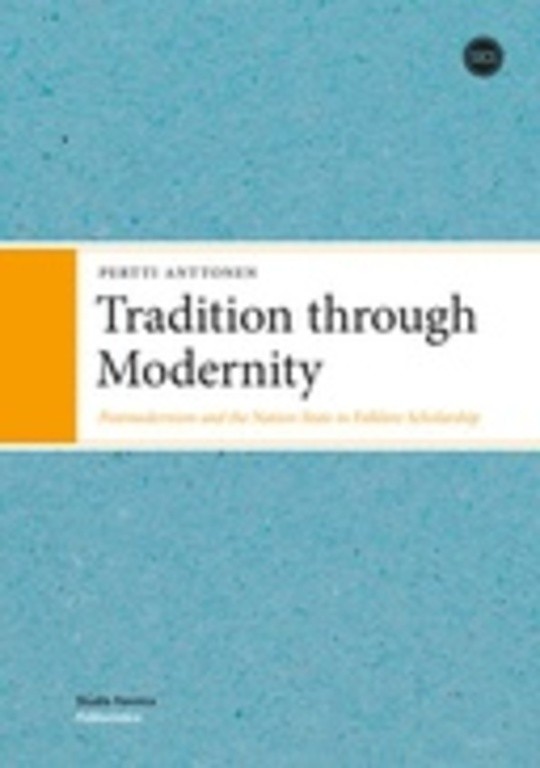
Tradition Through Modernity
Free
Description
Contents
Reviews
Language
English
ISBN
951-746-665-X
Tradition through Modernity
Title Page
Copyright Page
Contents
PREFACE
A SHORT INTRODUCTION
Part 1 The Modernness of the Non-Modern
1. FOLKLORE, MODERNITY AND POSTMODERNISM: A THEORETICAL OVERVIEW
What is Postmodernism?
Phenomenological Hermeneutics and the Social Construction of Reality
Politics, Poetics and Reflexivity
2. TRADITION IN AND OUT OF MODERNITY
Modern and Traditional – A Contradiction in Terms?
Modernity’s Temporal Others
Tradition as Modernity’s Otherness
Tradition as Model and Pattern
3. FOLKLORE IN MODERNISM
Promodern and Antimodern
Modernity’s Paradox
Sociology as the Science of the Modern
The Paradigm of Loss in Folklore Studies
The Collector’s Gaze
Folklore as Literary Text
The Search for a Lost Community
Folklore in the Modern
Folklore as Contestation
4. POSTMODERNIZATION IN THE MAKING
From Promodern to Antimodern
From Antimodern to Promodern
Part 2 Tradition, Modernity and the Nation-State
5. FOLKLORE AS NATIONALIZED ANTIQUITIES
Nationalism as Territorial Symbolism and Control
An Issue of Power and Loyalty
The Local and the Translocal
A Discipline with a National Agenda
Promodernist Antimodernists
6. TRADITION AND POLITICAL IDENTITY
Towards a European Consciousness and a European Identity
Cultural Identity as Political Identity
Folklore, Identity, Politics
The Nation and the State
A Bias for the Local
7. GLOBALIZATION AND NATIONALISM
Global Context
Global Economy and Politics
The Global and the National
8. CULTURAL HOMOGENEITY AND THE NATIONAL UNIFICATION OF A POLITICAL COMMUNITY
Common Genetic Heritage
Linguistic and Cultural Affinity
Karelians as Finns and Non-Finns
Innate Unity in Prehistory
Symbolic Lack of Class Hierarchies, and the Elite as Others
A Nation Divided?
9. FOLK TRADITION, HISTORY AND ‘THE STORY OF FINLAND’
A Model for Nation Building
Folk Tradition as ‘People’s’ Culture
Language and Culture Point to the East
History and Periphery as Prerequisites for a Nation
Finland is Modern by Having History
NOTES
SOURCES
The book hasn't received reviews yet.

